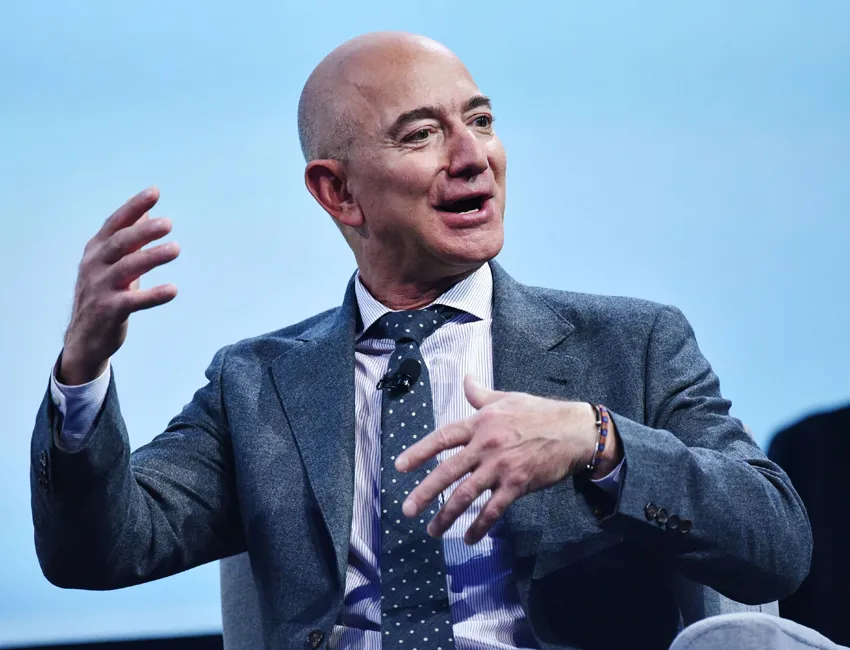Amazon founder and CEO Jeff Bezos’ commitment of $10 billion Earth Fund is a welcome move. This comes at a time when Amazon is facing criticism for its enterprise-wide carbon-footprint that totalled 44 million metric tons in 2018 -- greater than that of Switzerland. After businessman and philanthropist Warren Buffett and the late Helen Walton, Jeff Bezos’ climate pledge would be the biggest philanthropic donation in the United States this century.
As climate change has emerged as the greatest global development threat, is Bezos’ $10 billion fund adequate? Or, are contributions from individuals sufficient to meet the challenges? Not quite so. According to a 2019 Morgan Stanley report, the world needs investment to the tune of $50 trillion to reach net-zero emissions by 2050.
That said, Bezos’ contribution would be a significant resource in laying the groundwork for important climate action. After all, the amount is still bigger than what international institutions such as the United Nation’s Green Climate Fund (GCF) has replenished. So far, 27 countries have raised $9.8 billion to fund green projects for the 2020-2023 period.
While there is a lack of clarity in terms of how Bezos’ fund will be spent, it has the opportunity to make meaningful contributions in efforts to mitigation, adaptation and building resilient economies. The Earth Fund may begin with these first five steps:
Low carbon transition: The fund can be instrumental in efforts to overcome the political challenges in aiding the world’s transition to a low-carbon, resilient future. The US’ formal withdrawal from the Paris agreement, and its repealing environment regulations would increase the gap in climate action even further.
Bezos has an opportunity to create an influential political fund to counter the influential fossil fuel industry. Pursuing productive efforts in reshaping fiscal policies and tax systems of the developed economies to discourage carbon emissions will be a crucial way forward.
The transition to low carbon economy should also ensure that it is just, fair and equitable. Therefore, a sizeable portion of the fund should be devoted to help coal-dependent, developing regions in making this transition. A concerted push towards aiding research and development (R&D) and deployment of new, cleaner technologies will leverage stronger impact.
Innovation and technology: The fund should focus on scaling up, significantly reducing the cost and making available the already existing critical clean energy technologies. Directing investments in research on cutting- edge innovations and technologies, such as direct air capture (DAC), negative emissions technology (NET), carbon capture and storage, etc. that are very expensive for governments would help the world in developing game-changing solutions or to even know of the risks involved in deployment of such technologies.
Major adaptation technologies such as those for climate-smart agriculture or universal wastewater treatment and management, are immensely significant, especially for developing economies, to build greater resilience to the impacts of climate change. Technologies for restoration of habitats such as tropical forests and wetlands (that are both source and solutions of emissions) will be a vital step towards achieving the climate targets.
New business models: Amazon has faced severe backlash for its carbon footprint and pollution caused by shipping, packaging, and the data centres that support Amazon Web Services. While it has committed to powering its global facilities by 100 percent renewable energy by 2030, and reach net-zero carbon emissions by 2040, a company of scale as Amazon could do much better. Using a part of the fund to pioneer a green global supply chain network will act as a model for other businesses to adopt.
Another proposal that has emerged is Marcelo Salazar’s, Adjunct Coordinator of Amazon Xingu Program at the Instituto Socioambiental (ISA) in Brazil ‘Amazon for the Amazon’ funding. This could be used to shift the business models in vital rainforests from destructive practices like deforestation to renewable use of forest biodiverse resources that would lead ecosystems to thrive.
Resilient Infrastructure: On the face of increased, intensifying climate-induced extreme weather events, it makes sense to invest a considerable amount towards building or retrofitting vital infrastructure such as hospitals, rail and road networks, houses etc. The fundamental benefit of climate-resilient infrastructure will be to businesses such as Amazon that will, for instance, help boost the logistics networks for delivering packages.
Mobilise public support: Lastly, the fund should invest in research, analysis and engagement in countries regressing in climate actions (such as the US and Australia) that would help overcome challenges to achieving net zero emissions. Funding media to report the local impacts of climate change and counter misinformation would help build universal support for climate action.
Climate change is the biggest development challenge that would demand sustained, meaningful investments and collective efforts rather than individual action. However, the fund could set the foundation for much greater climate action.
This commentary originally appeared in The Money Control
The views expressed above belong to the author(s). ORF research and analyses now available on Telegram! Click here to access our curated content — blogs, longforms and interviews.




 PREV
PREV


